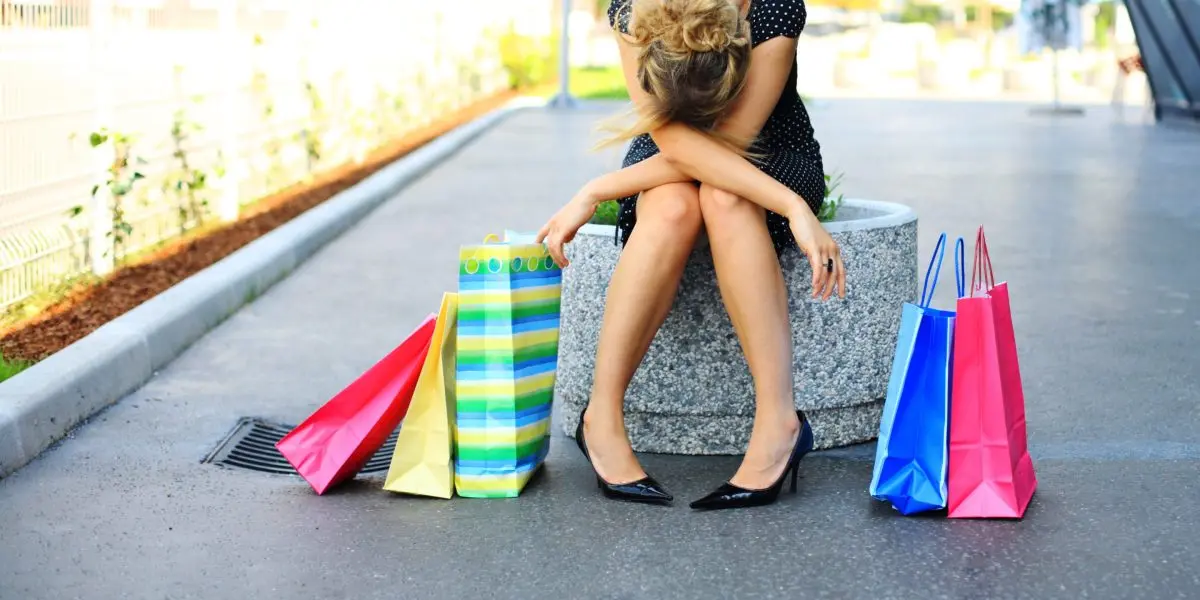An economist offered an explanation for a paradox that has emerged in recent data showing that spending has remained robust even as consumers report feeling pessimistic.
Joanne Hsu, who is the director of the University of Michigan’s consumer sentiment survey, told CNBC on Friday that she thinks Americans have abandoned plans to save money as they see their financial goals look less attainable and are spending money instead.
“This positive spending is not a reflection of some sort of internalized secret sense of confidence that consumers have,” he explained. “And instead my interpretation is that consumers see that a lot of aspirational goals that we talk about as part of the American Dream—homeownership, paying for college, paying for college for your kids, having a comfortable retirement—with high prices and high interest rates right now, those aspirational goals just feel increasingly out of reach.”


62% of Americans don’t earn enough to buy a house in the cheapest state in the country, the median wage is lower than the cost to buy that same house, and half of the people earn even less than the median. Of course people have no reason to save anymore.
↑ What decades of car-dependent NIMBY single-family zoning does to a MFer.
Yeah, anyone surprised by this just doesn’t know what poverty does to someone.
https://phys.org/news/2012-11-poverty-people-focus-short-term.html
We’re reacting exactly as we’re supposed to.
If you don’t know where tomorrows lunch is coming from, how are you going to save for rent?
If you don’t know where this rent is coming from, how are you going to save for a mortgage down payment?
When Maslow’s basic needs aren’t met, that’s what we devote all our attention to. Even in the brief periods where resources are in surplus, our monkey brains say we have to use all those resources ASAP while we still have them.
It’s not people saying “yolo” and intentionally blowing their money, it’s evolution being geared to survival in the present rather than the next decade. These people are acting rationally, it’s just on a very very small timescale.
It’s why the best way to incentive the economy is give poor people money. They’ll keep spending it immediately until their basic needs are met, then for a little longer, then finally they can break out of the poverty mindset and plan long term. Which is what’s best for the economy long term.
But if the wealthy keep them poor and distracted with day to day survival, they’ll never be able to plan far enough ahead to challenge the current system to benefit the wealthy.
Who’s going to “just give poor people money”? The monkey brain also applies to the people in power. Change will only happen if you can convince those in power that it is in their own self-interest to invest in the poor.
Yeah, every single time I see one of these articles, I’m just like, “Where have you been since 2008?” The “American Dream” has been dead a long time.
It’s literally why “adult” became a thing you do instead of something you are in the 2010s. Because the traditional hallmarks of middle class suburban lifestyle (the house with a white picket fence, 2.5 kids and a dog or cat) have increasingly become an impossible pipe dream for the Millennial and younger generations. When the traditional markers of the transition to adulthood become out of reach for the majority of people, what does adulthood even look like anymore.
There’s a very well researched video that goes over it that I stumbled across one day called the perpetual infantilisation of millennial women. It focuses on Millennial women (obviously), but goes into detail about how “adulting” became a word in the popular lexicon and how increasingly untenable a life like previous generations is for Millennials and Gen Z despite being the most well educated generation in history.